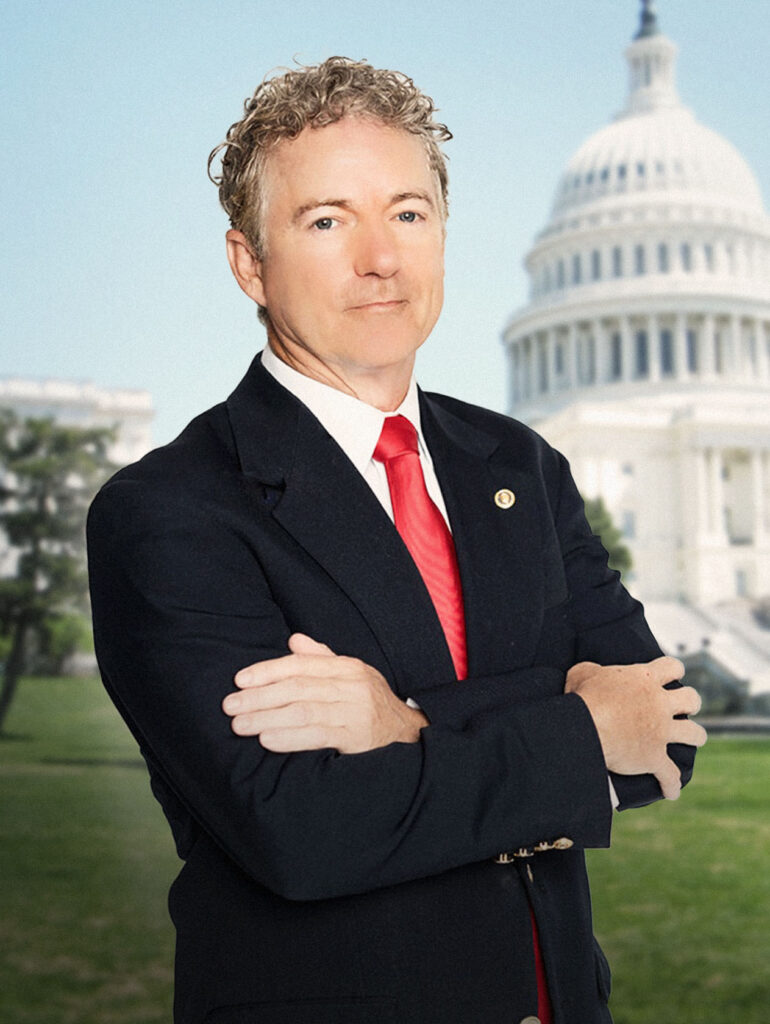The Strains on the Kentucky GOP

Russell Berman offers a capsule of the bizarre politics of the Bluegrass State:
The 54-year-old has been frustrating Trump since the beginning of the president’s first term. The two are now fighting over the extent of Trump’s war powers—Massie called the air strikes on Iran unconstitutional—and the president’s “big, beautiful bill,” which the seventh-term lawmaker opposed, one of just two House Republicans to do so.
Massie is frequently a lone critic of the president in the 220-member House GOP caucus. But he’s not such a solitary voice in the Kentucky delegation. The Bluegrass State backed Trump by 30.5 percentage points last year—one of his largest margins in the country. Nationwide, Republicans are more united around Trump than they’ve ever been. Yet Kentucky has become a rare hotbed of GOP resistance to the president’s agenda.
Senator Rand Paul of Kentucky, an early Trump presidential rival in 2016, is an ideological ally of Massie’s; he’s criticized the president’s tariffs, his expansion of executive authority, and the deficit-busting legislation that contains the bulk of Trump’s economic agenda. Then there’s the state’s senior senator, Mitch McConnell. Liberated from his commitments as Republican leader, the soon-to-retire McConnell has denounced Trump’s Ukraine policy and his tariffs. He voted against more of the president’s Cabinet nominees—Pete Hegseth, the defense secretary; Robert Kennedy Jr., the health secretary; and Tulsi Gabbard, the director of national intelligence—than any other GOP senator.
McConnell, Paul, and Massie occasionally oppose Trump from different sides. But together they form a powerful bloc among the seven Republicans in Kentucky’s eight-man congressional delegation, and their stands against the president are angering many of Trump’s diehard supporters in the state, who feel oddly unrepresented by the lawmakers they’ve sent to Washington. “We voted for Trump to straighten some things out,” Devon Cain, a 77-year-old retiree, told me outside a farm-supply store in Winchester, a small town outside of Lexington. “Why a Republican would want to buck him, I don’t know.” Mark Wallingford, a physician in rural Mason County, is even more livid. “I will not vote for Thomas Massie. And if he is unopposed, I just wouldn’t vote,” he told me after a local GOP meeting…
To outsiders, Kentucky’s politics can be hard to grasp. In some respects, the state is no different than any other Republican stronghold. Outside of the urban centers of Louisville and Lexington, Kentucky is largely rural and conservative. The state has not backed a Democrat for president or for the U.S. Senate since the 1990s. All but one of Kentucky’s six House members are Republican, as are the majorities in both chambers of its legislature.
But even as the state has gone decisively for Trump the past three elections, it has twice elected a Democratic governor, Andy Beshear. And the pair of Republicans that voters have sent to the Senate, McConnell and Paul, are as different from one another as any two senators from the same party in the country. McConnell is the institutionalist: a Reaganite and a Kentucky power broker who is now one of the last members of the GOP’s old guard still serving in Congress. Paul arrived in Washington as part of the Tea Party wave of 2010, having upset a McConnell-backed front-runner in the primary by campaigning as a spending hawk. Massie won election to the House two years later on the Tea Party banner. “We’ve always been a bit all over the place in the candidates that we support,” Rick VanMeter, a strategist from Kentucky who has worked for several Republicans in the state, told me.
Adding to this weirdness is that the current mayor of Lexington (a reliable Democratic stronghold that preferred Harris to Trump by 18 points) is a registered Republican who won re-election over a prominent local Democrat by a 71-14 margin. I’ve voted for her twice without a moment’s hesitation; as Erik has alluded, there’s something dangerous and nasty about nationalizing every local political race.
Nevertheless the apostasy of the state is damn strange, and overall probably a consequence of Kentucky’s extremely late (2016) red shift in the state legislature, which is itself a consequence of Kentucky being the whitest state in the American South (8.09% Black) meaning that party politics that prevail across the rest of the South took a very long time to shake out.
In any case, just because McConnell, Massie, and Paul each irritate Trump in their own ways does not mean that any of them should be lionized as moderates; the latter two in particular are among the most radical members of the GOP on issues that are pretty important to America’s social welfare, and the former is of course the architect of modern GOP obstructionism.


